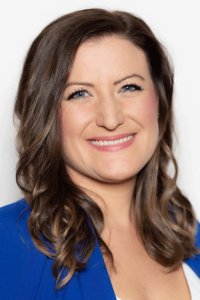On Saturday, June 26, an expert panel will discuss the interplay of new technology and advances in the understanding of nutrients’ effects on blood glucose. The two-hour symposium, which will begin at 4:00 p.m. ET, is titled Carbohydrate Counting—Still Useful with Evolving Insulin Delivery Technologies?

“Fat, protein, and the glycemic index all have a big role to play in blood glucose level management,” said Kirstine Bell, APD, CDE, PhD, the National Health and Medical Research Council Early Career Research Fellow, University of Sydney, and Principal Research Fellow for the Australian Type 1 Diabetes General Population Screening Project. “There is a convincing body of evidence that we need to consider these nutrients and move away from the traditional approach of solely focusing on carbohydrate amounts and have a more holistic view of nutrition and how that plays into blood glucose levels and overall health.”
Dr. Bell will discuss how to determine and teach bolus insulin dosing to type 1 diabetes patients while moving away from a carbohydrate-centric approach.
“It was the type 1 diabetes community that said to us, ‘There is something more than carbohydrates happening,’ and they were 100% right,” said Dr. Bell, who will present new research on the effects of various nutrients when consumed individually versus in combination.
“The foods people eat play into a bigger picture of health, not necessarily just managing glucose,” said Holly Willis, PhD, RDN, LD. “You could eat a diet of bacon and diet soda all day long and you’d manage your glucose really well. But that wouldn’t be good for your whole health.”

Dr. Willis, of the International Diabetes Center, will explain how continuous glucose monitoring (CGM) offers a highly personalized view of glucose regulation and how it can be leveraged to optimize food intake.
“There’s never a best diet to recommend to everyone, but there might be a best diet for an individual,” she said. “CGM data can help us figure out what that best diet might be. It gives us a clear picture of how an individual’s body responds to food and it shows us exactly what happens to glucose over the course of a day.”
But the data alone is not a solution, she cautioned.
“People need to use the data, and they need partners who can help them eat well for overall health,” Dr. Willis said.
Additional speakers for the session include Becky Sulik, RDN, LD, CDCES, and Bruce A. Buckingham, MD. Sulik, Director of Education at Rocky Mountain Diabetes Center, will present a real-world perspective on carbohydrate counting for bolus insulin decision-making. Dr. Buckingham, Professor Emeritus of Pediatric Endocrinology at Stanford University, will discuss the role of new insulin delivery technology in the future of diabetes nutrition management.
“We’re asking people to make decisions about their diabetes on an hour-by-hour, day-by-day basis,” Dr. Bell noted. “We need solutions that work for them in practice. No longer can we apply broad-brush approaches. We need to provide care at the moment that they need solutions that work for them.”
VIEW THIS PRESENTATION
Already registered?
View this presentation at ADA2021.org
Not yet registered?
Register now to access all presentations from the Virtual 81st Scientific Sessions